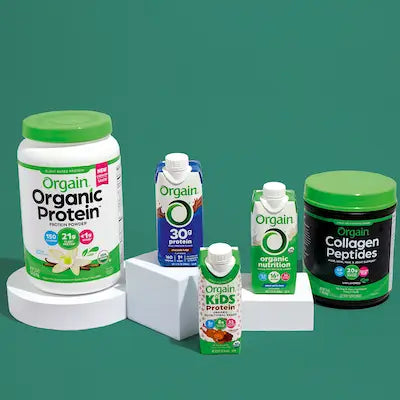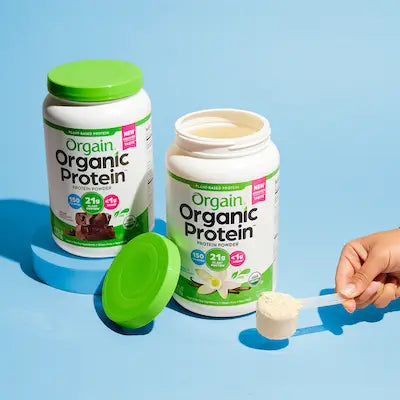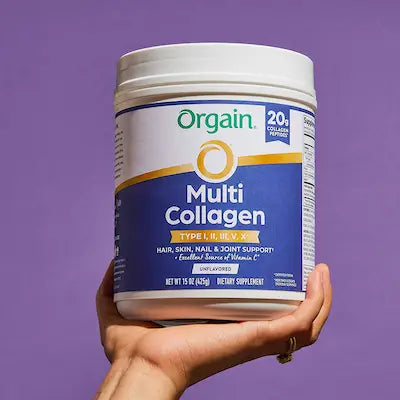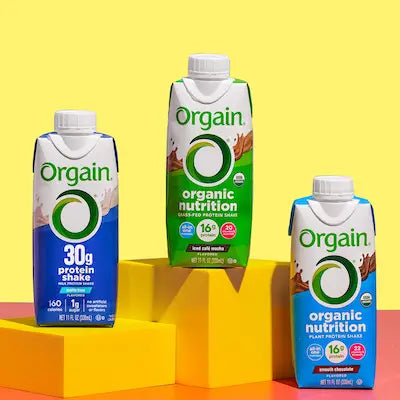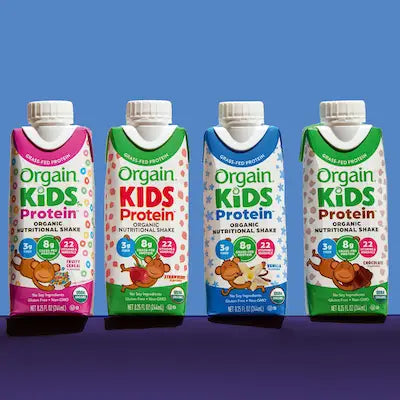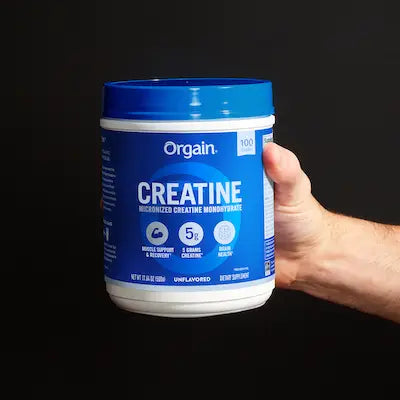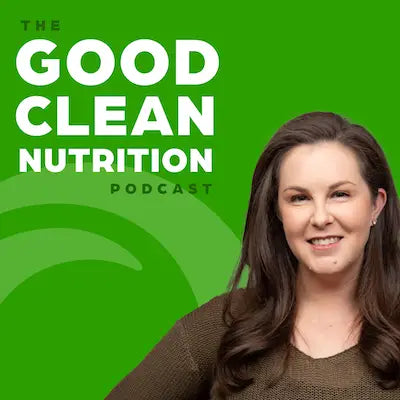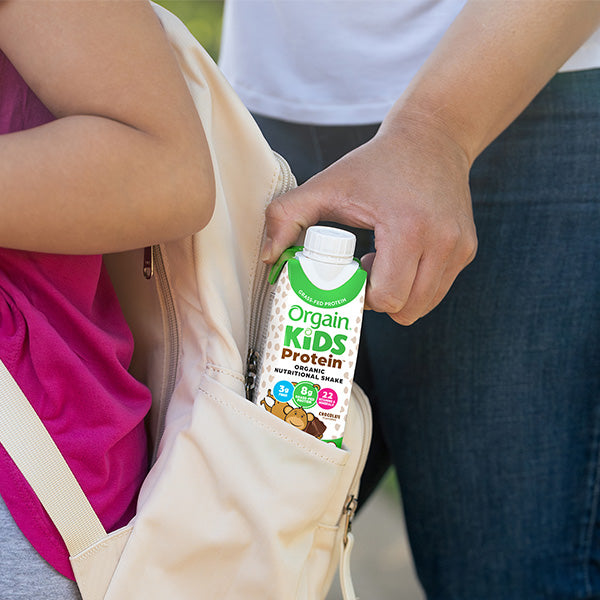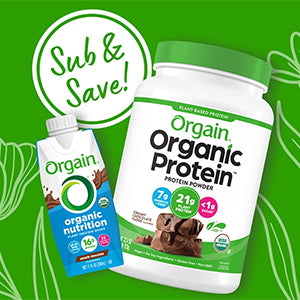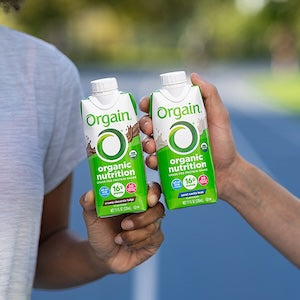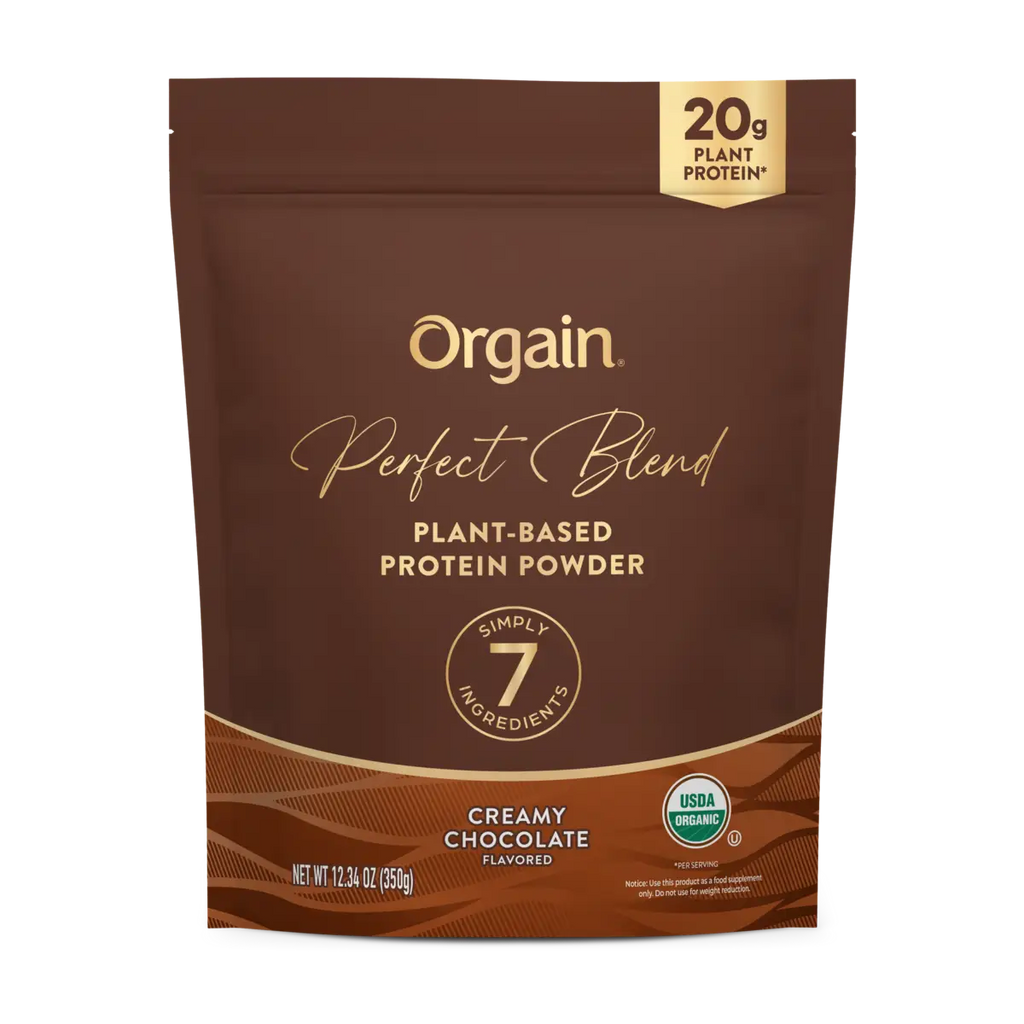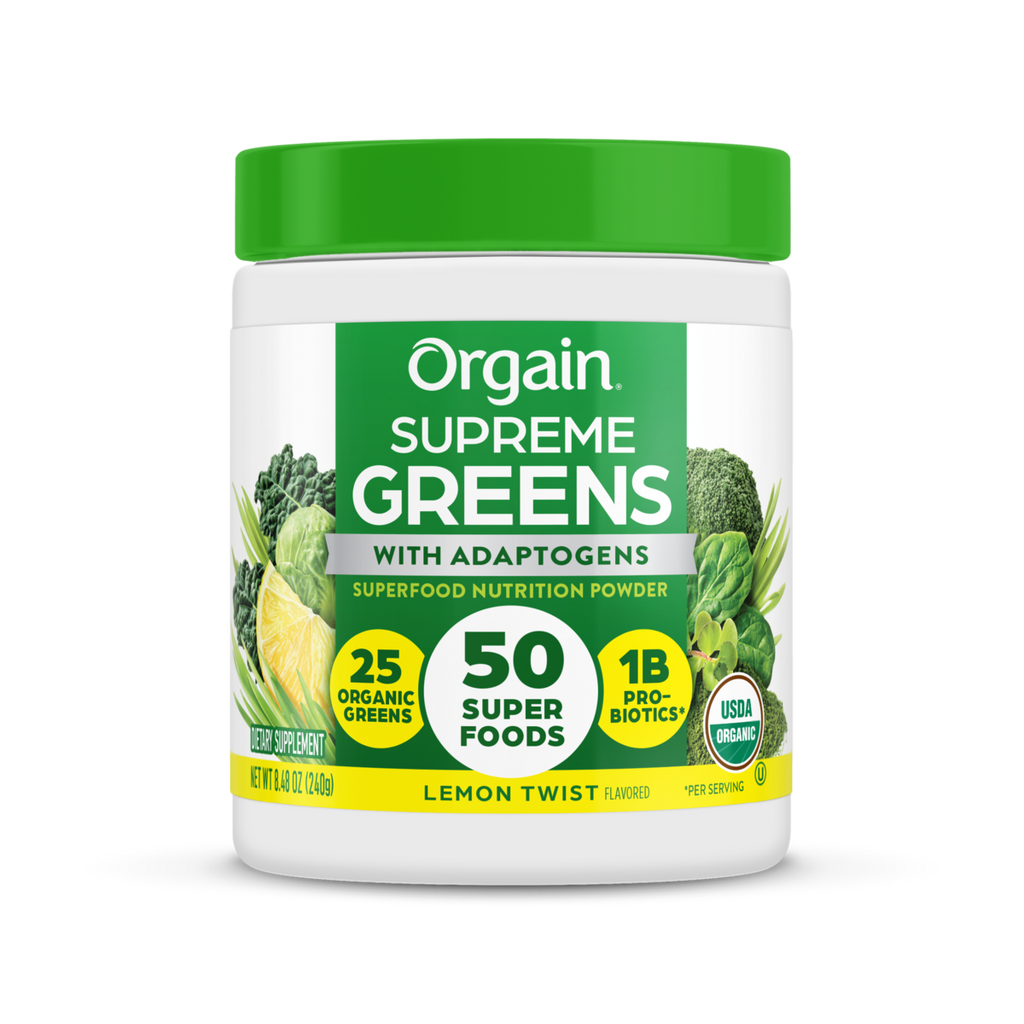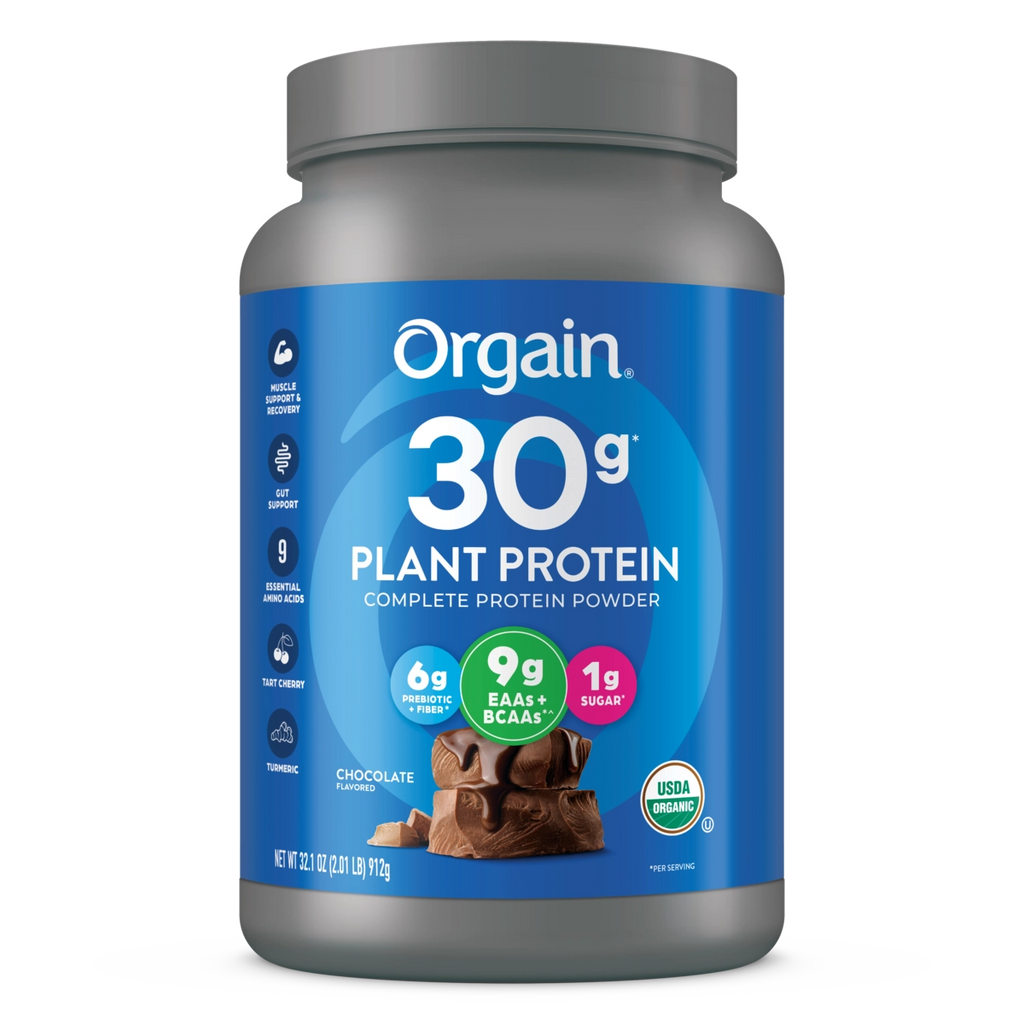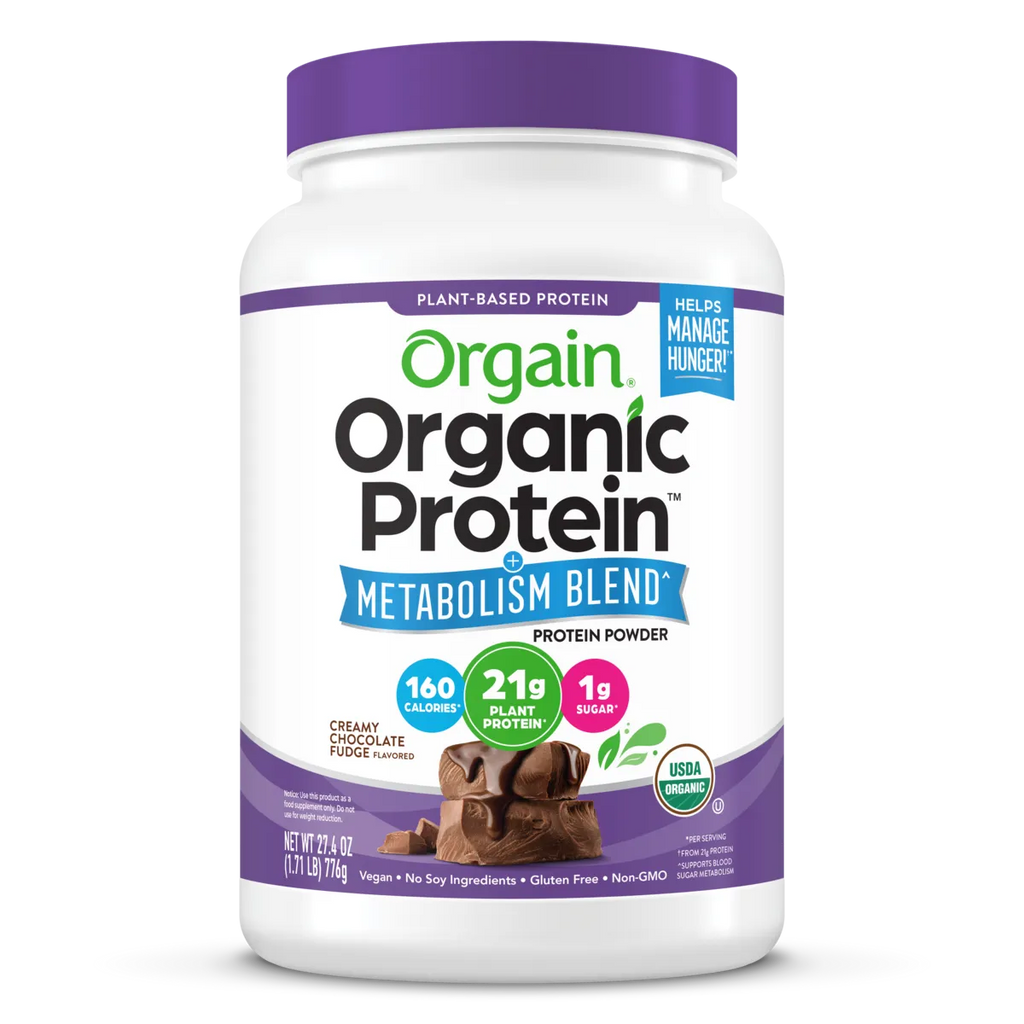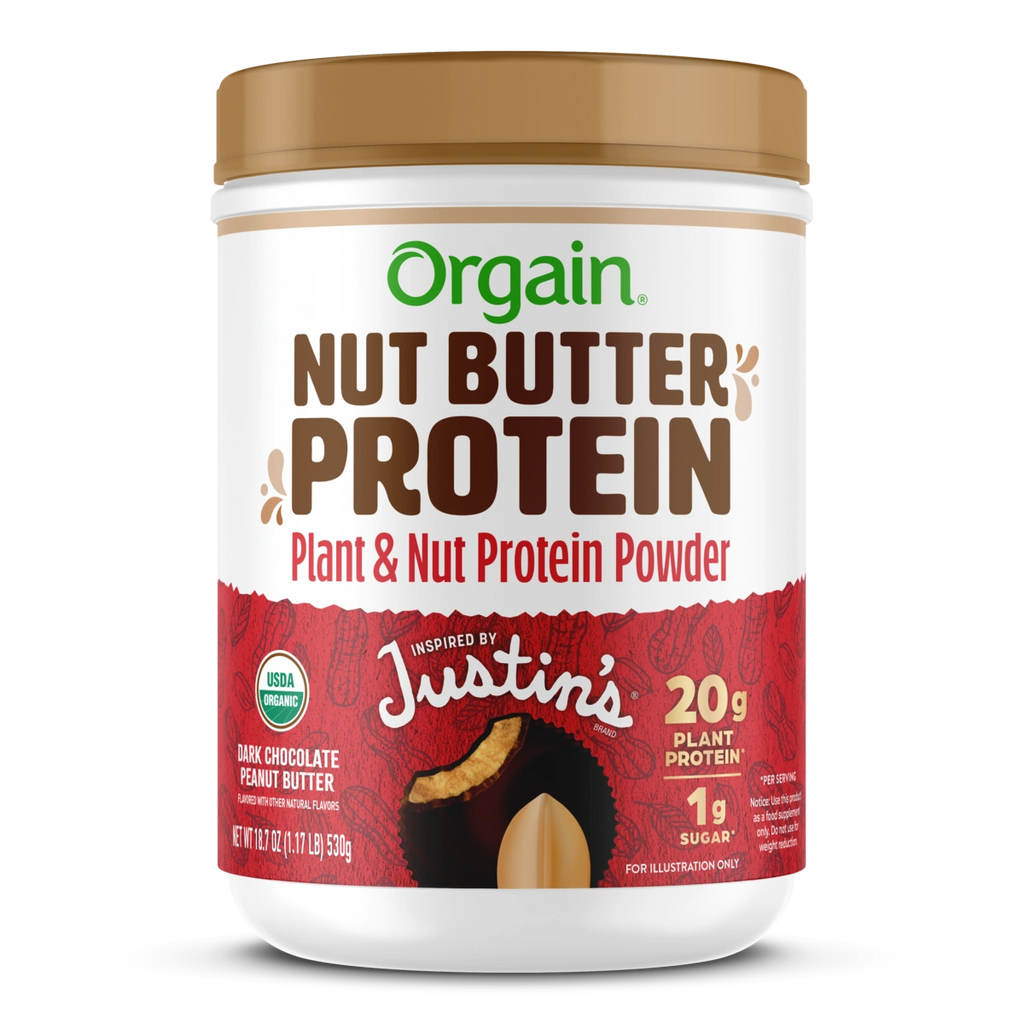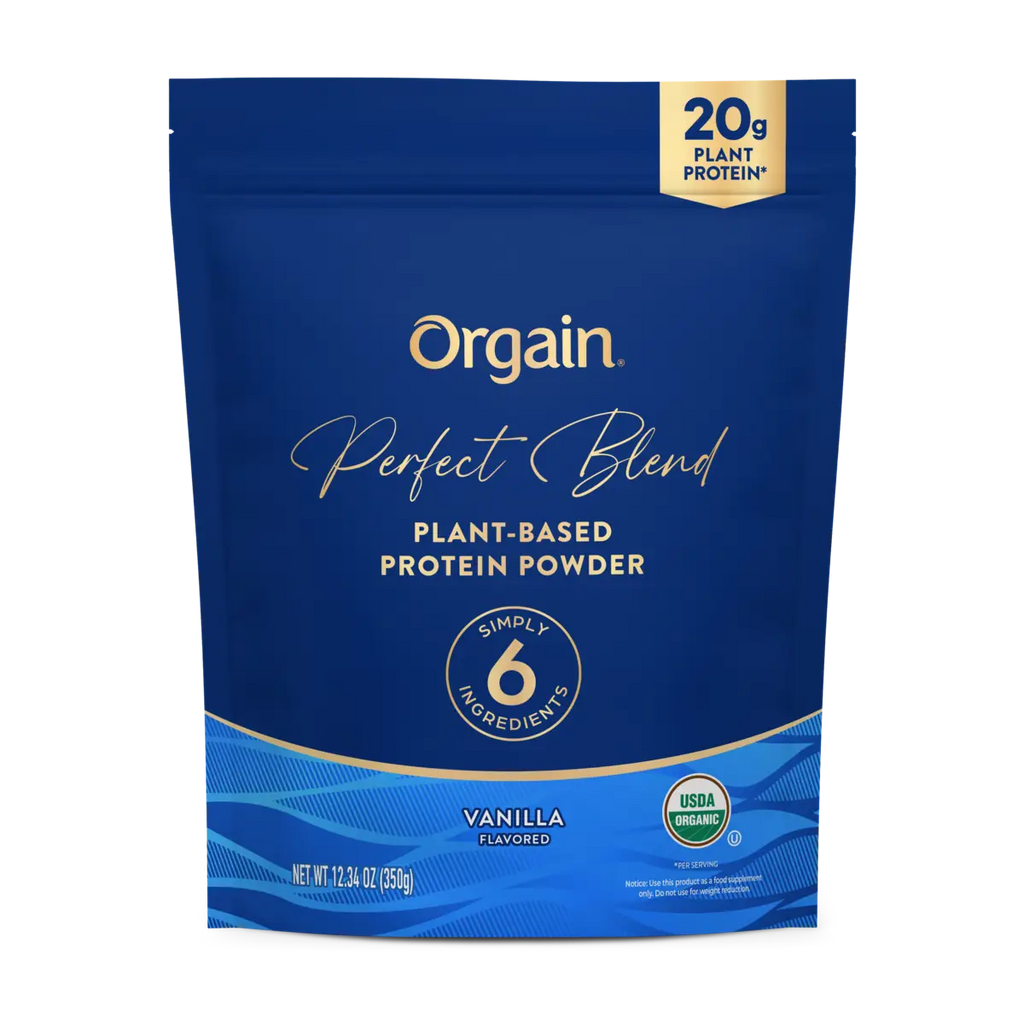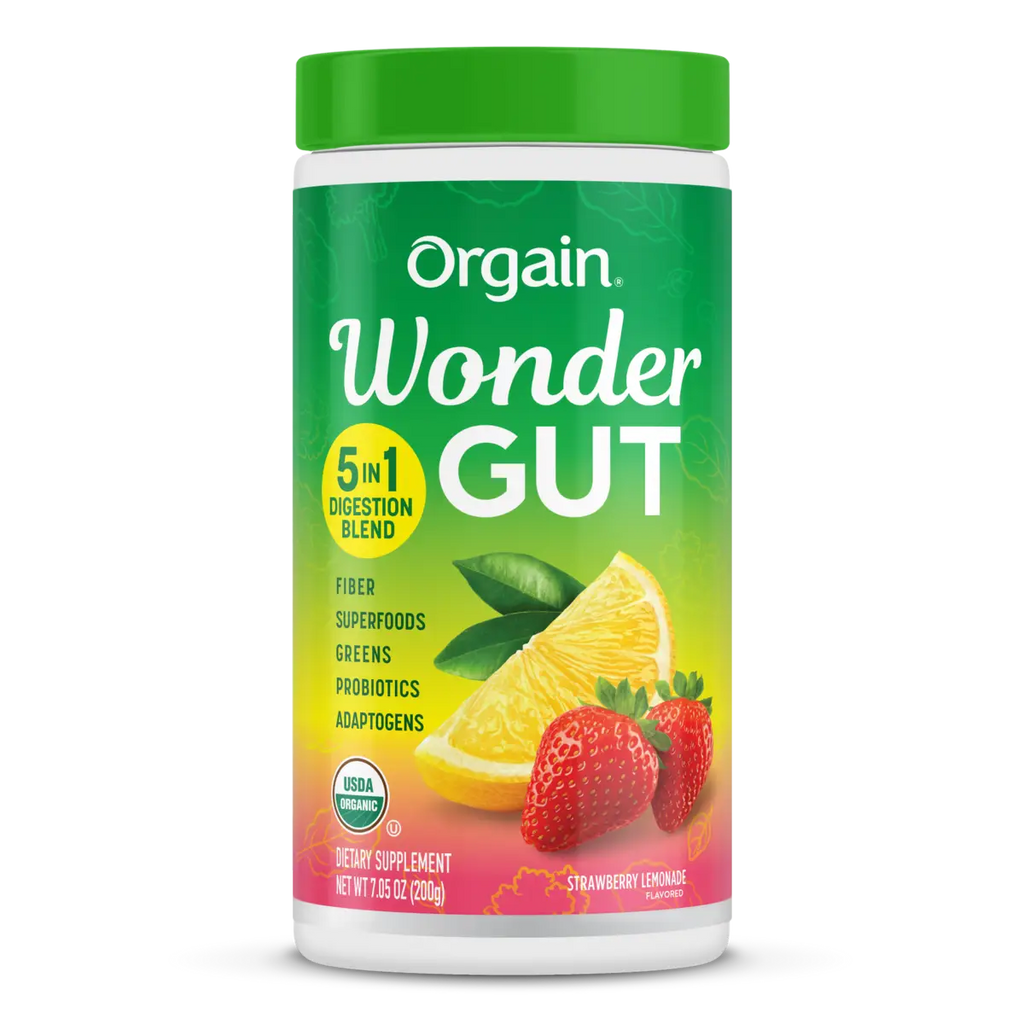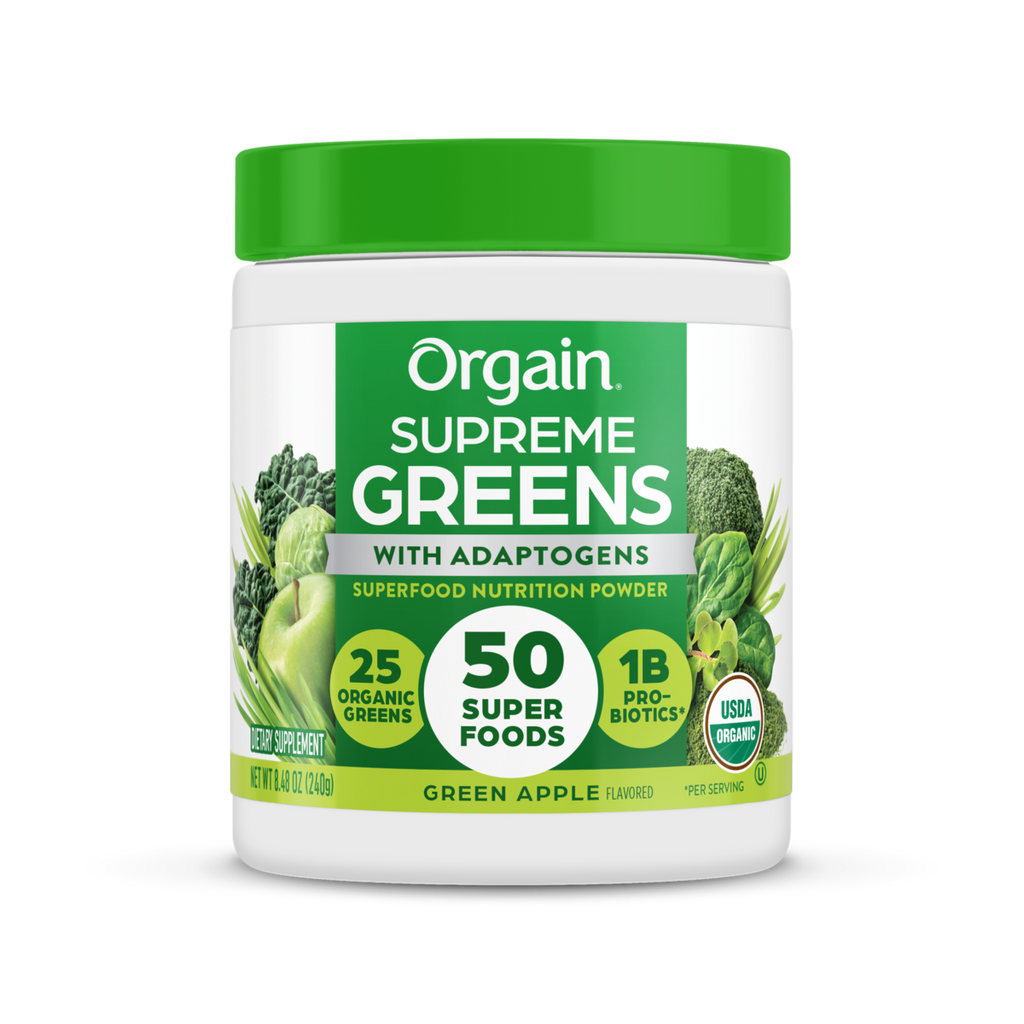We all know that protein is essential to our health, but why is it important and how much is enough?
Protein is found in every cell of our body and plays an essential role in the health of our muscles, organs, hormones, skin, blood, hair, and immune system. For children, protein also promotes proper growth and development. But what is protein exactly? To paint a picture, imagine you are making a necklace, threading together 20 colorful beads on a string. You can use these beads to create different patterns, colors, and lengths. Visually speaking, this is similar in concept to what a protein looks like! The beads are the building blocks for the necklace, just as the amino acids are the building blocks for a protein.
When we eat protein-rich foods, we break them down into amino acids through digestion. These amino acids are then used to build, repair and support various functions in the body. Pretty cool, huh? Consuming the right amount of protein-rich food, be it plant-based or animal-based protein, is essential for a healthy and nutritious diet.
HOW MUCH PROTEIN DO WE NEED?
Now that we know the importance of protein and what it represents let’s dive into the amount of protein needed. The Recommended Dietary Allowance (RDA) for protein in a healthy adult is 0.8 grams of protein per kilogram of body weight. For simplicity, the values shown below represent daily protein intake in grams across the lifespan. It's important to note that these values and the above equation represent the minimum amount of protein needed to prevent deficiency. Meaning these values are deemed adequate, but the term “adequate” is not the same as “optimal.”1 Given this, it’s always advisable to talk to your treating healthcare provider or pediatrician about individual protein needs based on age, activity level, and any other considerations to determine what's most appropriate for you or your child.
- Toddlers from 1-3 years: 13g/day
- Children from 4-8 years: 19g/day
- Adolescents from 9-13 years: 34g/day
- Adolescents from 14-18 years: 52g/day (boys), 46g/day (girls)
- Adults from 19-70+ years: 56g/day (boys), 46g/day (girls)
THE PICKY EATING CONUNDRUM
What about picky eaters? Adults and kids alike may be averse to certain types of proteins and for parents, this can be especially concerning. But rest assured, there are plenty of protein-rich foods you can easily incorporate into any nutrition regimen.
Consider adding these nutrient-dense, protein-rich foods at meals and snacks:
Please note: The protein sources below are meant to serve as a guide for building your own plate, and the quantity of protein should be tailored to your unique needs. Some individuals will likely need more or less protein at meals or snacks depending on age, individual health needs and wellness goals. Always consult with your treating healthcare provider, dietitian, or child’s pediatrician if you have any questions or concerns regarding individual protein needs or nutrition status.
| Food | Amount | Protein (g) |
|---|---|---|
|
Meat, Poultry, Pork, Fish *Based on female/male adult servings |
*1-2oz (snack) *3-6oz (meal) |
7-14g (snack) 21-42g (meal) |
| Greek Yogurt | 6oz | 12-18 |
| Cheese, hard, low fat | 1oz | 7 |
| Egg(s) | 1-2 | 12-14 |
| Beans/Lentils | 1/2 cup | 7-9 |
| Nuts/Seeds | 1oz (1/4 cup) | 4-6 |
| Nut Butter | 2 tbsp | 7 |
|
Extra Firm Tofu Soft/Silken Tofu |
3oz 3oz |
10 4 |
| Edamame, fresh or frozen | 1/2 cup | 8 |
| Hummus | 1/3 cup | 7 |
| Orgain Kids Protein Organic Nutritional Shake | 1 carton | 8 |
| Orgain Kids Plant Protein Organic Nutritional Shake | 1 carton | 8 |
| Orgain Plant-Based Protein Powder | 2 scoops | 21 |
